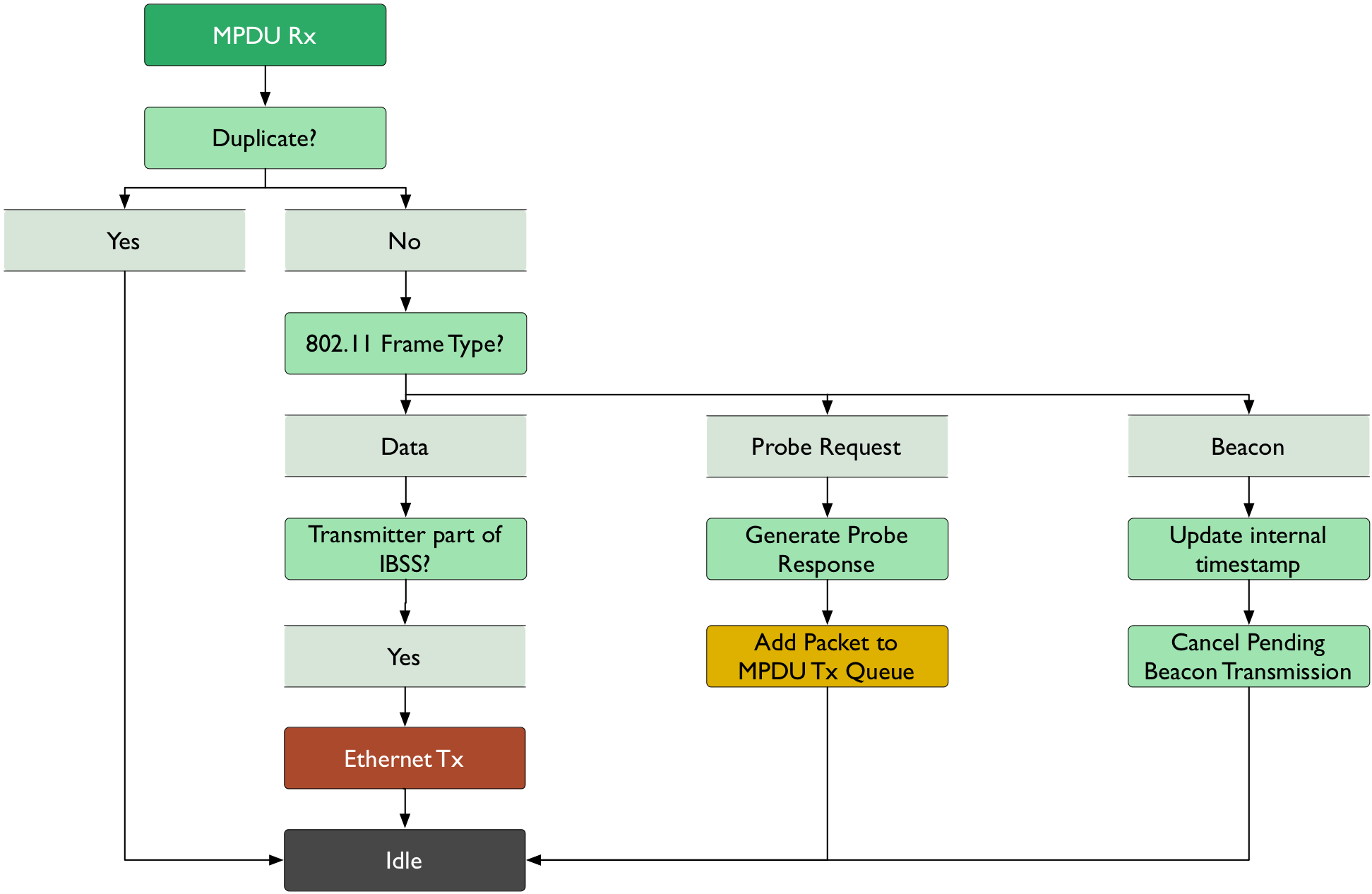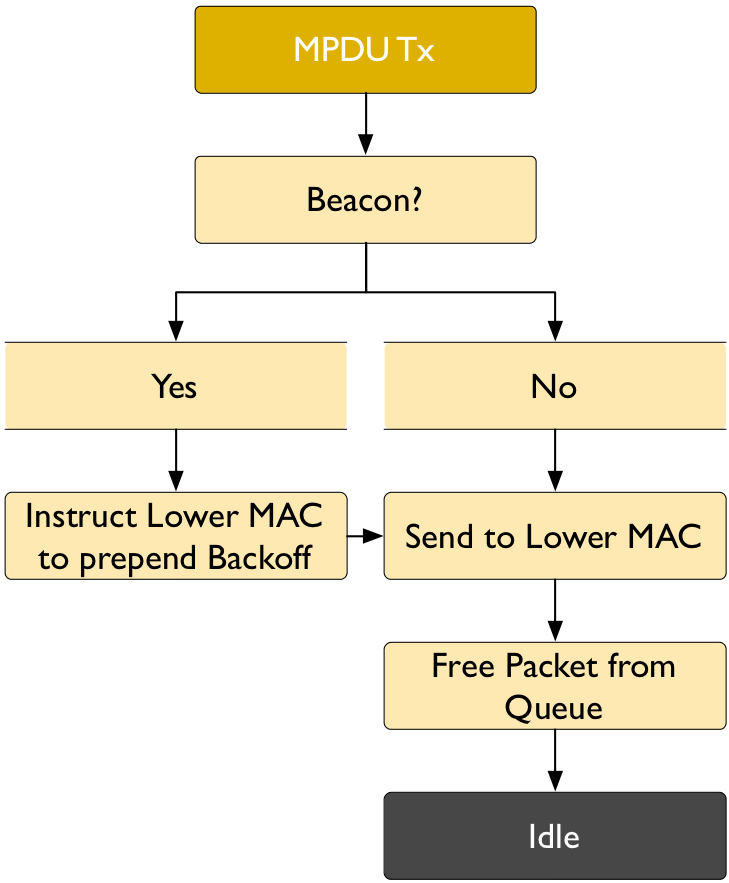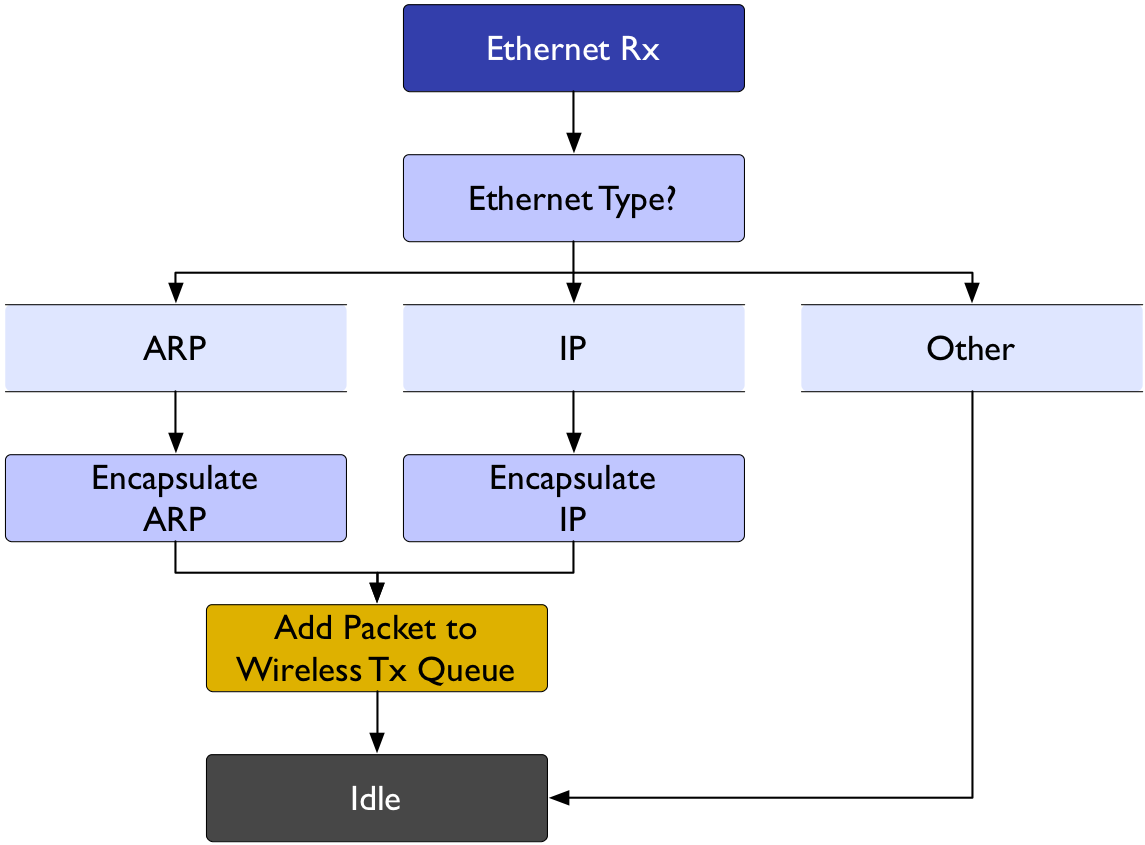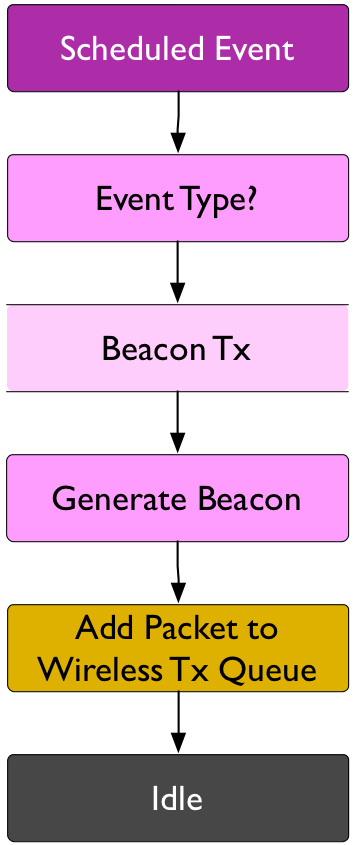802.11 Reference Design
- Download
- Changelog
- FAQ
- Architecture
Using the Design...
Benchmarks
- IFS Calibration
- Throughput
- Transmitter Characterization
- Receiver Characterization
- Pkt. Det. Min. Power Characterization
MAC
Upper-level
Lower-level...
- PHY
Experiments Framework...
- Packet Flow
- FPGA Architecture
- FPGA Resource Usage
- App Notes
- Other Resources
- License
- Changelog
Independent Basic Service Set (IBSS)
The IBSS implementation in the Mango 802.11 Reference Design allows a WARP v3 kit to be a member of an ad hoc network.

|
| Top-level view of IBSS States |
There are three broad classes of events that pull the AP implementation out of an idle state. Those classes are:
- Wireless MPDU Receptions
- Ethernet Frame Receptions
- Scheduled Events
In our implementation, each of these state transitions occurs via an interrupt.
Wireless MPDU Receptions

|
| MPDU Reception States |
The IBSS implementation is generally simpler than an AP or STA primarily because there is no authentication/association handshake prior to membership in an open IBSS. Instead, the IBSS implementation only needs to be able to deal with three packet types: Data, Probe Requests, and Beacons. As described in section 10.1.3.3 of 802.11-2012, beacon generation in an IBSS is distributed among every member of the IBSS through a random game. Upon reception of a beacon, the IBSS node needs to be able to cancel any pending outgoing beacon transmission.
Wireless MPDU Transmissions

|
| Ethernet Reception States |
Wireless transmissions in an IBSS act much like either an AP or STA with one subtle distinction. If the transmission is a beacon, a backoff must occur prior to transmission. This is the random game specified in 10.1.3.3 of 802.11-2012. An IBSS member "wins" by sending the beacon first and causing other IBSS members to cancel their outgoing beacon transmissions.
Ethernet Frame Receptions

|
| Ethernet Reception States |
Ethernet frame receptions come from the Ethernet portal and are delivered wirelessly to the IBSS. Unlike an AP, Ethernet frames are not thrown away if their destination MAC addresses do not match an associated station. In an IBSS, there are no associations so the implementation acts more like a pure Ethernet bridge.
Scheduled Events

|
| Scheduled Events |
Like an AP, an IBSS node must periodically attempt to transmit a beacon. Unlike an AP, the IBSS will cancel an enqueued beacon if it received a beacon prior to the transmission.